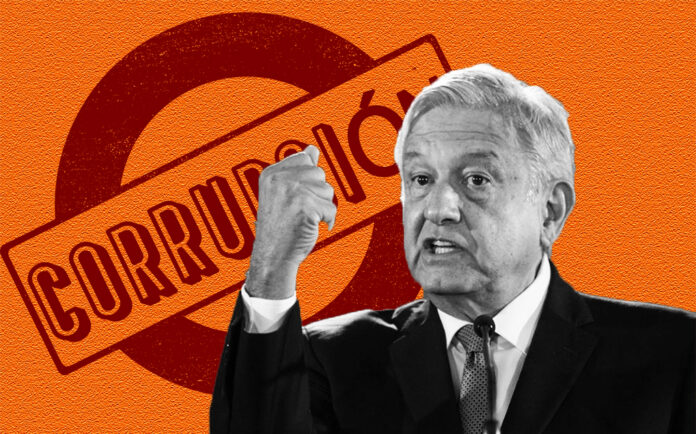Latin America -with the exception of Uruguay, Chile and Costa Rica- got once again bad grades in the world corruption index released this Tuesday by Transparency International.

Transparency International presented this Tuesday its 2022 corruption perception index.
Paraphrasing the famous Gabriel García Márquez, one could speak of the “chronicle of an announced bad news”. Once again, the Latin American continent presented high levels of perception of corruption.
The instrument ranks 180 countries and territories based on perceptions of corruption in the public sector, on a scale of 0 to 100, where zero equals “very corrupt” and 100 equals very little corruption.
The average for the Americas stands at 43, and almost two-thirds of the countries score below 50.
DW exclusively interviewed the organization’s president, Delia Ferreira Rubio, who, from her studio in the City of Buenos Aires, analyzed the causes, consequences, and perspectives of the phenomenon in Latin America.
DW: What is the main balance that this new index leaves for Latin America?
Delia Ferreira Rubio: A pending subject, repeatedly pending. If one analyzes Latin America, with the exception of Chile and Uruguay, and to a lesser extent Costa Rica, we are well below the global average. Most countries are below 40 points, and on a scale of 100, being there is clearly a problem.
This is the case for Colombia, Argentina, Brazil, Ecuador, Panama, Peru, El Salvador, the Dominican Republic, Bolivia, Mexico, Paraguay and Honduras. In other words, in Latin America we are wrong. And many countries are in a situation of stagnation.
It worries me a lot because this goes hand in hand with the deterioration of democracy, the lack of respect for the independence of the judiciary, which, in turn, is connected to corruption investigations and the need for there to be consequences, that is, that there is no impunity.
This means that if there are high degrees of corruption, journalism informs, civil society denounces, and nothing happens, the only thing that is generated is a lack of trust in the institutions.

And a vicious circle is formed…
I say that it is even worse than a circle: it is a spiral, because it is growing. If there are institutions that do not work, it is an opportunity for corruption. And once the corruption is there, those institutions work even worse.
In addition, in our region, we see that in countries that have made progress against corruption, as soon as governments change, the results of previous investigations begin to be questioned.
There are authoritarian or populist governments that reach government democratically, but the first thing they do is use the power they have acquired to try to eliminate controls, attack the judiciary, and attack the media. Like the Bukele government, in El Salvador, or the Guatemalan government. And in Argentina, we are witnessing the attacks on the Supreme Court of Justice, because the possibility of a conviction for the vice president for corruption cases is closer. It’s the world upside down.
In our Latin American societies the basic social consensus is broken, we live in the culture of “swaddling”, as the lyrics of that tango say: “It doesn’t matter if you’re upright or a traitor”. Latin America, with the exception of Uruguay and Chile, is a bargain: “Everything is the same, nothing is better, the same a donkey as a great teacher.”
Corruption is a word that, because it is used so much, can even lose its forcefulness in meaning, but you maintain that it is associated with fertile ground for organized crime and the abuse of human rights.
That’s how it is. Corruption is added, in some countries, organized crime, particularly drug trafficking. With this, the rate of violence in the region increases. Some countries directly experience a state capture. In the case of Venezuela or Nicaragua, they are organized crime structures that are entrenched in the State.
And it is also fertile ground for attacks on the media, and particularly journalists. Think of Mexico, the most dangerous country for journalists. And that, is because they report on the collaboration of the State, the Police and the Armed Forces with drug trafficking groups.
But, in addition, corruption does not only imply economic or political benefits. Many times in our countries we have cases of corruption in which the exchange currency – and this particularly affects women and younger girls – is a sexual act.
What do Uruguay and Chile do well?
In both cases, it is not that there is no corruption, the difference is the reaction, which is to apply the law, quickly, and punish those who have to punish. But, in addition, there is something that is in the background of this, which has to do with culture. In Chile, in particular, there is respect for the norm, for the law. In Uruguay, there is a condition of citizenship by which they feel obliged to act according to certain rules, such as honesty, respect for others and dialogue.
In this sense, what are the solutions to corruption?
The exits are multiple. There are things that the State can do, with good laws, that are applied, with control organizations that are independent. But the private sector also has a very high responsibility, which is not to participate in corruption and not encourage it: corruption cannot be a mechanism for doing business. And society has to stop being indifferent, and stop voting for the corrupt.
Do you think there is a will for change?
That is precisely the problem we have. But if we remain silent, not only will we not be able to fight against corruption, but the ground that gives us minimum guarantees will also continue to deteriorate.
The message has to be clear: corruption is at the base of all our failures as a society, and of our crises: from the deforestation of the Amazon to the war in Ukraine.
Source: confidencialdemexico.com, dw.com, cnnespanol.cnn.com






